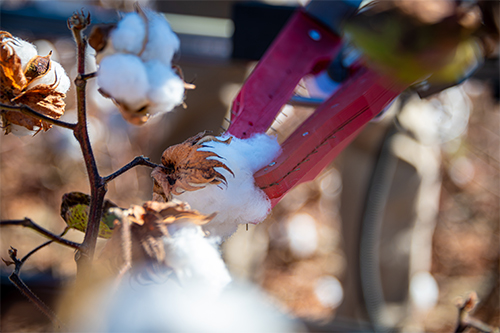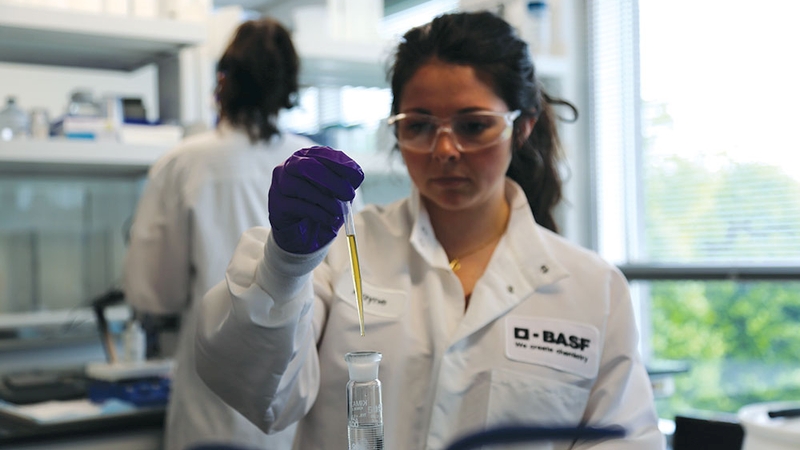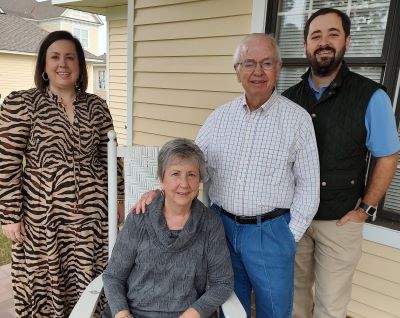Jimmy Sanford: 2022 Cotton Grower Cotton Achievement Award
2022 Cotton Grower℠ Cotton Achievement Award recipient Jimmy Sanford
Jimmy Sanford does not like the spotlight.
That doesn’t mean that he’s not interested or involved in matters that catch his interest or when an opportunity calls him to serve. He simply prefers to work quietly behind the scenes, providing his business and farming experience to build relationships and consensus for the betterment of the cotton industry and other state and local organizations.
He’s been a voice of reason and action for decades and is still going strong today.
That’s why Cotton Grower magazine recognized James H. “Jimmy” Sanford of Prattville, AL, as the recipient of the 2022 Cotton Grower℠ Cotton Achievement Award.
Sanford is Chairman of the Board of HOME Place Farms, Inc. in Prattville. He’s a fourth-generation cotton producer whose great-grandparents established the family farm in 1881. He is a past president of the National Cotton Council and Southern Cotton Growers and has served as chairman of the Alabama Cotton Commission since it was established 30 years ago. He also helped found and currently serves as chairman of Autauga Quality Cotton Association, a marketing cooperative serving cotton growers from Texas to Virginia. He also served on the board of Alabama Power for almost 34 years.
Through all of that, he also found time to manage the 4,000-acre family farm that comes with a proud lineage of service to the cotton industry and local activities, including well-known Alabama leaders James Thomas Murfee, McQueen Smith, and Will Howard Smith.
Not bad for someone who, for a while, was determined not to farm.
Hooked on Technology
“When I went to Auburn in the mid-1960’s, I was going to be an entomologist,” recalls Sanford. “After my first year, I found that wasn’t right for me, so I switched to the School of Business and got interested in computer technology, which was a new thing at the time. I got hooked on computer programming and designing systems, and I thought, ‘I am not planning on coming back to the farm’.”
When he graduated with a B.S. in Business Administration in 1968, IBM offered him a job. In true Sanford style, he negotiated a delay in starting in order to complete his master’s degree in economics.
Then, fate intervened.
Back home in Prattville, a group of farmers organized the Autauga Quality Cotton Association in 1967. And after a year of trying to keep the records and books manually, they recognized the need to look at this new computer technology to see if could help. They approached Auburn’s Ag Econ department about it and, not surprisingly, the project eventually landed in Sanford’s lap.
“This became my master’s thesis,” he says. “I designed a system and did all of the programming for the association. Then, I started processing their gin and warehouse receipts for them. During that two-year period, I embraced my values. And I knew then that I wanted to go back into some part of agriculture.”
After Auburn, Sanford was able to negotiate after hours processing time on the computer at the Department of Transportation in Montgomery as well as with Continental Gin and Ring Around Seed in Prattville. When McQueen Smith Farms invested in its own computer, Sanford turned the processing work over to his wife, Dot (they met at Auburn), when he came back to the farm. Fifty-two years later, she still has it all under control.
His computer background is one of the primary reasons why HOME Place Farms is an early adopter and early adapter of new technology. “In 1970, we had about 120 people working on the farm,” says Sanford. “Today, we have about 10. We’ve worked with John Deere for more than 30 years to roll out our harvesters, planters, and tractors every year. We want and need our people to farm with the latest state of the art technology.”
Sanford’s son Will now manages HOME Place Partners and the day-to-day farm production with the family’s farm manager Crawford Jones. Daughters Susan and Catherine are also partners involved in the farm operation. Not coincidently, all are graduates of Auburn, where Sanford sits on the university’s board of trustees.
Sanford’s support system (from left): daughter Catherine, wife Dot, Sanford, and son Will. Daughter Susan is not pictured.
Getting Involved
Like many of the cotton industry’s leaders over the years, Sanford really didn’t have much choice when it came to getting involved. “The family has always been involved, so I didn’t know any better,” he jokes.
“I view myself as a leader servant,” he says. “I say it that way because leader is an adjective. My calling is as a servant. I want to be involved in a leadership position if a group calls me to do it. I love policy making in the policy arena.”
Sanford’s great-uncle and uncle got him involved as a director of Alabama Power, a position that Sanford says, “enriched my skills and abilities and allowed me to bring some of those skills and training to other organizations.”
That involvement led Sanford to Alabama Farm Bureau, Southern Cotton Growers, Alabama Cotton Commission, and to the National Cotton Council (NCC).
“I’m a big general consensus person, and the thing that makes the Council so successful is you’re able to form consensus and move ahead and come to agreement in a room full of really strong personalities,” he says. “Part of the job is also bringing in new, strong leadership. That’s been one of my personal fulfillments from being involved with the Council. It has also awarded me the opportunity to build life-long relationships and friendships.”
“Jimmy is a humble but highly effective communicator and leader who has been a champion for promoting and preserving unity within the Council,” says NCC President/CEO Gary Adams, who notes that Sanford remains dedicated to improving the Council’s overall operations through multiple committees and task forces, most recently the leaf roll dwarf virus working group.
David Ruppenicker, CEO of Southern Cotton Growers, credits Sanford as being the driver behind several key cotton industry initiatives including the Upland Cotton Loan Differentials in the 1981 Farm Bill, working to get cottonseed designated as an “other oil seed” which ultimately evolved into the current seed cotton program in the 2018 Farm Bill, and for continued boll weevil eradication funding.
“A beautiful thing about this industry is how we take an issue and work it,” notes Sanford. “It’s exciting to be involved. Perseverance is so important.”
So is family. “People like me couldn’t do what I do without Dot and our family,” he says. “If you don’t have family support, you can’t do it right.”
So, what advice would Sanford give to the next generation of cotton leaders? His response is not surprising.
“My mother always said don’t give advice unless you’re asked,” he says. “And when you’re asked, start out slow. First of all, I’d say they have to have a passion – be all in. Then, know that it’s a business and how it operates. But more importantly, it’s a calling. The calling truly is the way of life.”










